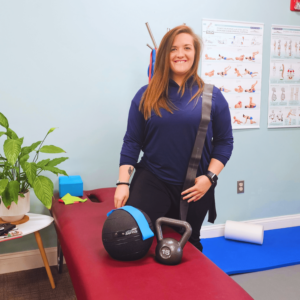Vertigo is a common, frustrating, and sometimes very debilitating problem, and one that I see often in my practice.
The key to successfully treating vertigo is understanding the possible causes and triggers. Obviously we want to rule out truly dangerous causes like brain or cardiovascular diseases, and that can often be done by getting a detailed history and examination. Once those are ruled out, we can focus on finding and correcting other more common causes.
Causes of Vertigo
One of the most common causes of dizziness and vertigo we see and have great success with in our office is Cervicogenic Vertigo. This is the medical term for vertigo that is triggered from stress and strain in the joints and muscles of your head or neck.
The upper part of your spine and the muscles that attach your head to your body are heavily loaded with nerve endings (called proprioceptors) that sense position and movement. Basically, they tell your brain where your head is in relation to the rest of your body. Your eyes and ears also send position information to your brain. This info needs to sync with the signals coming from your neck, spine, and the rest of your body. Anytime you move, all these nerves and muscles need to coordinate to help you to maintain balance and stay upright.
Due to injuries like whiplash, sports injuries, or concussions, or poor posture that strains these muscles and ligaments, the information that goes to your brain can be “inaccurate.” If the info your brain is receiving from your eyes, ears, and neck doesn’t match up, it creates a kind of chaos in the sensory processing areas of your brain. this can lead to feeling disoriented or off balance, especially when you move. In addition, injured muscles and ligaments can’t do their job to help you stabilize your head and keep your balance. The end result is what shows up as a feeling of dizziness, vertigo, or loss of balance.
Diagnosing Vertigo
Finding a diagnosis of cervicogenic vertigo includes getting a detailed history of injuries and illnesses, medication use, and identifying triggers when possible. We also test:
- Range of motion
- Muscle strength and stability
- Balance and coordination
- Eye and head movements
Treatments of Vertigo
Once we understand the underlying causes, we use a combination of treatments including:
- Spinal adjustments and soft tissue therapies to improve joint movement
- Frequency specific microcurrent to address inflammation of the soft tissues and nerves
- Nutrition supplementation to relieve inflammation and support general health
- Rehabilitation exercises to improve strength, stability, coordination and balance.
Vertigo can be very debilitating — if you are struggling to find solutions please give us a call so we can help!





